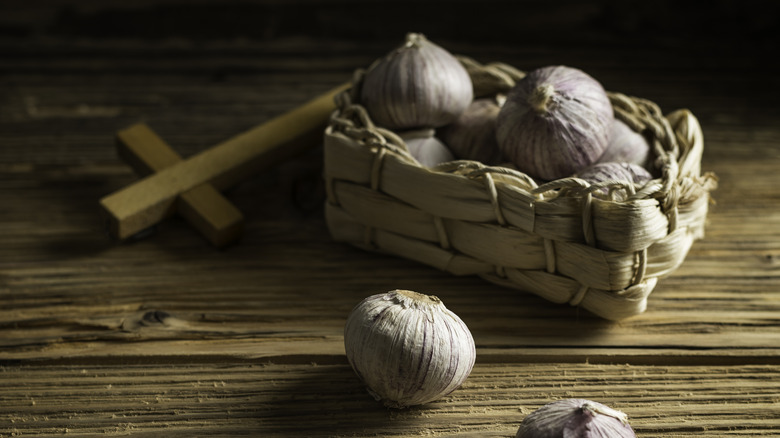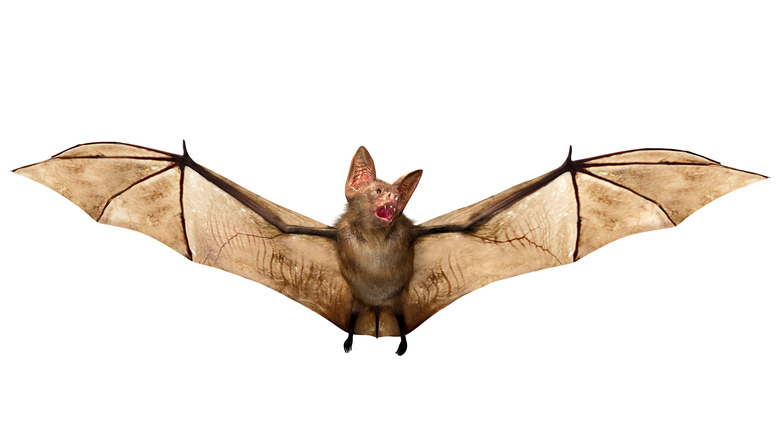Why Are Vampires Believed To Hate Garlic?
The legend of the undead creature that stalks its victims by night and drains them of their blood has been around for thousands of years, and so has our love of garlic. There were tales of what we now call vampires as far back as Ancient Greece, and humans have been ingesting garlic for twice as long. But our modern idea of the vampire's aversion to garlic comes from Eastern European folklore as interpreted by 19th-century novelist Bram Stoker in his book "Dracula."
Garlic, it's said, can ward off vampires, and the reason may be related to actual diseases researchers believe paved the way for stories of the legendary bloodsuckers. According to "The vampire in medical perspective: myth or malady?" people suffering from both rabies and the rare blood disorder porphyria have an aversion to garlic. Notably, people with rabies have a heightened sense of smell, and garlic's pungent properties could be too much for them to stomach. In the case of porphyria, garlic can worsen the anemia associated with the disease.
Real diseases
Rabies is transmitted via the saliva of an infected person or animal, usually through a bite, and brings on symptoms that have a very vampiric sensibility. Strong odors, such as the pungent smell of garlic, can bring on "hoarse groans, bared teeth, and a bloody frothing at the mouth," according to "Vampire Forensics: Uncovering the Origins of an Enduring Legend." Before 1885 there was no vaccine for the disease, so it seems like a good culprit for the legend of the vampire and its aversion to garlic.
Porphyria — a group of related genetic disorders that affects hemoglobin production and is found in about one of every 200,000 people — also has some common attributes with mythic vampirism. People with these disorders are photosensitive and tend to shy away from sunlight, which can cause severe skin problems. Additionally, the gums often contract, making the teeth appear longer. Compounds found in garlic can produce an enzyme that can further break down heme — the red part of hemoglobin containing iron — making the sufferer's anemia worse, per "Garlic as a vampire deterrent: fact or fiction?"
Garlic's medicinal properties
Another possible reason vampires and garlic supposedly don't mix may stem from garlic's medicinal properties. In the Middle Ages, many Europeans believed a blood disease caused vampirism and that garlic had the ability to kill bloodsuckers. In Transylvania, which has been part of Romania since 1947, garlic has been used as medicine and to ward off evil spirits for generations. According to "Garlic, an Edible Biography: The History, Politics, and Mythology behind the World's Most Pungent Food," it's smeared on doors, windows, and the horns of their livestock to keep vampires away.
Besides being used to ward off vampires, garlic also has a long history as an ingredient in folk medicine thanks to allicin, a compound with a high sulfur content that has antitoxins, according to "Vampirology: The Science of Horror's Most Famous Fiend." Garlic also has antibiotic and antifungal properties. With all these benefits, eating more garlic may not just keep vampires away, but doctors as well.


